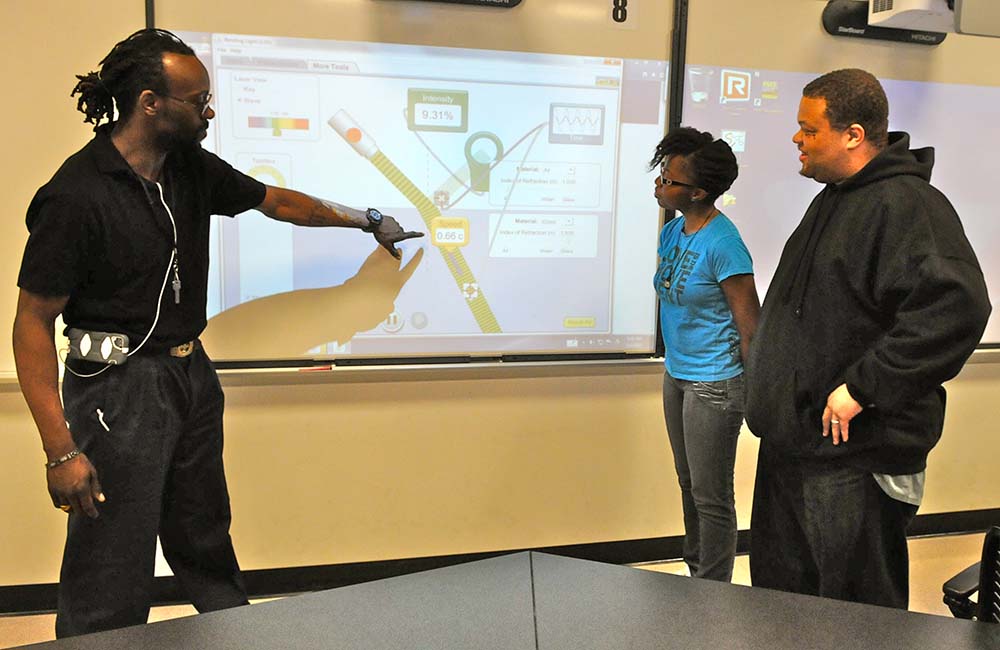Courtesy of Chicago State University
Chicago State University (CSU) recently received two grants from the National Science Foundation (NSF) that leverages CSU’s expertise on the Learning Assistant (LA) Model. CSU will be collaborating with lead institutions Oakton College and Tufts University to support effective use of the LA Model, through implementation and education research.
(i) The Inaugural Innovation in Two-Year College in STEM education award, led by Oakton College, seeks to implement the LA Model at a two-year college. The program aims to support potentially transformative projects that will advance innovative, evidence-based practices at two-year colleges nationwide in science, technology, engineering and mathematics education. Drs. Jacquelyn Benchik-Osbourne and Mel Sabella from CSU will serve as the Co-PIs, advisors, and experts on how to grow and sustain the LA model. Northeastern Illinois University will also collaborate on the grant as a Co-PI. The initiative also combines leadership development with the LA model, inspired by Tara Yosso’s community cultural wealth framework.
(ii) The Learning Assistant Professional Development for Facilitation Practices in Active Learning STEM Courses, is a research initiative led by Tufts University, in partnership with Texas State University – San Marcos and CSU. Dr. Andrea Van Duzor from CSU will serve as Co-PI. This program will look into how pedagogy activities impact classroom discourse and socio-emotional support.
The LA Model is a national initiative located in 130+ institutions in the United States. LAs are undergraduate students who facilitate discussions in a classroom setting, through weekly preparation sessions and the completion of a pedagogy course. CSU faculty and students have served on governance committees and lead and co-lead sessions and workshops on the model across the country. These grants will enhance, strengthen, and recognize CSU’s leadership role and expertise in the effective use of the LA Model.
These grants aim to implement the LA Model and enable cross sharing of data and discussions. Additionally, it would increase the interaction and engagement in the classroom settings and learning environments.

